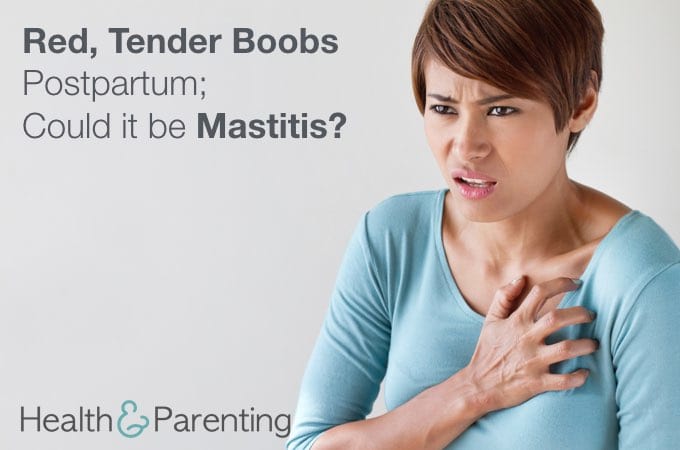Breast tenderness may have been one of the first clues you were pregnant. Though many women experience sore breasts at some point during this cycle, this discomfort may be heightened during pregnancy.
Your breasts may feel sore from as early as three weeks into the pregnancy – that’s just one week after conception. They may feel sensitive, tender, sore and even tingle, during early pregnancy. Not all women experience breast soreness, but many do. Accidental knocks, nudges and brushes can feel unbearable.
Breast soreness is most common during the first trimester, and most women find the discomfort eases as the pregnancy progresses. Though you may still have some unusually sensitive breasts for the rest of the pregnancy, the discomfort should pass after the first 12 weeks.
What causes breast soreness?
As usual, it’s those pesky hormones causing trouble again. As your hormone levels increase rapidly during early pregnancy, you may find yourself suffering from all kinds of symptoms. The hormones progesterone and oestrogen cause breast tenderness during early pregnancy.
As your body prepares for pregnancy, your breasts are changing. They are probably growing, and are also preparing to produce breast milk for when the baby is born. Your breasts are likely to change size during pregnancy, and this can be uncomfortable while the growth is occurring.
How to cope with sore breasts
Unfortunately, for many women, breast tenderness comes hand in hand with pregnancy. While there is no magic cure to this problem, there are ways you can minimise the discomfort:
- maternity bras – a maternity bra is designed to properly support the growing and changing breasts of pregnancy. Your pre-pregnancy bras may not offer the right support once your breasts have grown
- avoid underwire – experts advise avoiding underwired bras during pregnancy because they may cause further discomfort
- get measured – make sure you are wearing properly fitting bras, and this means being measured by a professional. During pregnancy, it’s more important than ever to wear bras that fit properly.
-
get remeasured – your breasts will continue to grow and change throughout the pregnancy, so make sure you are remeasured every couple of months
- night time bra – if you are being kept awake by the discomfort, invest in a soft night time bra.
- no touching – if your breasts are sore, ask your partner not to touch them
- be careful – accidental knocks and brushes can be reduced, if not avoided, so try to take extra care when your breasts are sore
Are you experiencing breast tenderness during pregnancy, and have you tried any of the above tips to reduce the discomfort?
Written by Fiona (@Fiona_Peacock), mother, writer and lover of all things baby related.
This information is not intended to replace the advice of a trained medical doctor. Health & Parenting Ltd disclaims any liability for the decisions you make based on this information, which is provided to you on a general information basis only and not as a substitute for personalized medical advice. All contents copyright © Health & Parenting Ltd 2017. All rights reserved.











